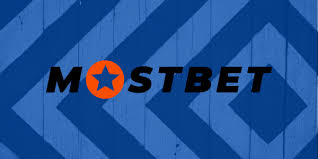
Best methods for successful sports
In the competitive world of athletics, discovering the best methods for successful sports often feels like finding a needle in a haystack. However, a combination of strategies focusing on training, mindset, and nutrition can yield impressive results. For those looking for an edge, consider visiting Best methods for successful sports betting 2025 mostbet-az-2025.xyz to explore additional resources and tools that enhance performance.
1. Tailored Training Regimen
A successful athletic career does not happen by chance; it is the result of a well-structured training regimen tailored to the unique needs of the athlete. Key components of effective training include:
- Strength Training: Building muscle through weightlifting can significantly improve sports performance.
- Endurance Training: For sports requiring stamina, incorporating long-distance running or cycling is essential.
- Skill-Specific Drills: Practicing the fundamental skills of the sport is crucial for mastery and should be done consistently.
2. Positive Mindset and Mental Toughness
Sports are as much a mental game as they are a physical one. A positive mindset can elevate performance. Here are some techniques to develop mental toughness:
- Visualization: Athletes should regularly visualize their success, envisioning themselves excelling at their sport.
- Goal Setting: Establishing specific, measurable, and achievable goals can provide athletes with clear targets to strive for.
- Mindfulness and Focus: Practicing mindfulness can help athletes stay present, reducing anxiety and improving performance under pressure.

3. Nutrition and Hydration
The importance of proper nutrition cannot be overstated. A well-balanced diet fuels the body and aids in recovery. Consider the following:
- Carbohydrates: Essential for energy, carbohydrates should be a primary component of an athlete’s diet.
- Proteins: Critical for muscle repair and growth, proteins should be consumed post-workout to help in recovery.
- Hydration: Maintaining hydration is crucial, especially during training and competition. Athletes should drink plenty of water and consider electrolyte-replenishing drinks during prolonged activities.
4. Recovery and Rest
Recovery is just as important as training. Overtraining can lead to injuries and burnout. Methods for effective recovery include:
- Sleep: Quality sleep is vital for muscle recovery, cognitive function, and overall health.
- Active Recovery: Light activities such as walking, swimming, or cycling can promote blood flow and aid in recovery without the strain of high-intensity workouts.
- Massage and Physiotherapy: Regular massages or physiotherapy sessions can help alleviate muscle tension and speed up recovery.
5. Coaching and Mentorship
Having a coach or mentor can provide invaluable guidance and insight into improving performance. A good coach should:
- Provide Feedback: Coaches can identify areas of improvement and provide constructive criticism to hone an athlete’s skills.
- Motivate: An effective coach not only trains but also inspires athletes to reach their full potential.
- Develop Strategies: Coaches can help devise strategies specific to the athlete’s strengths and weaknesses, particularly in competitive settings.

6. Embracing Technology
Technology plays an ever-increasing role in sports, enhancing training and performance analysis:
- Wearable Devices: Fitness trackers and smartwatches can provide real-time data on heart rate, distance, and calories burned, which helps athletes monitor their performance closely.
- Video Analysis: Analyzing video footage allows athletes to assess their techniques and identify areas for improvement.
- Virtual Reality Training: Some athletes are beginning to use virtual reality environments to simulate competitive situations and enhance mental preparedness.
7. Community and Support System
Having a strong support system can make a significant difference in an athlete’s journey. Community engagement fosters a positive environment that can include:
- Family Support: A strong familial support system can encourage athletes through challenges and celebrate their successes.
- Peer Relationships: Building camaraderie with teammates can lead to better motivation and performance.
- Networking: Engaging with other athletes can create opportunities for collaboration, competition, and shared learning experiences.
Conclusion
Achieving success in sports is a multifaceted endeavor that requires dedication, strategy, and a holistic approach. By focusing on tailored training, developing a positive mindset, prioritizing nutrition, allowing ample recovery, seeking effective coaching, embracing technology, and cultivating a strong community, athletes can significantly improve their performance. Implementing these best methods for successful sports can turn aspirations into achievements, leading to a fulfilling athletic career.

Recent Comments